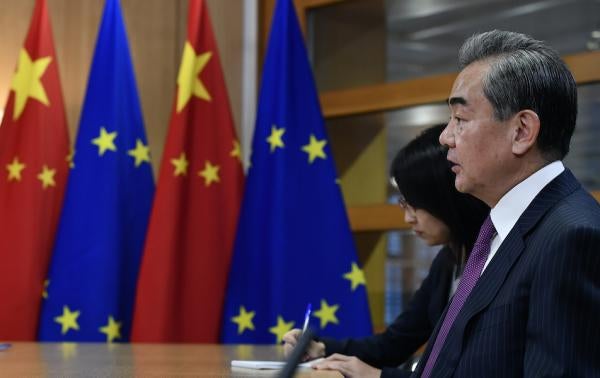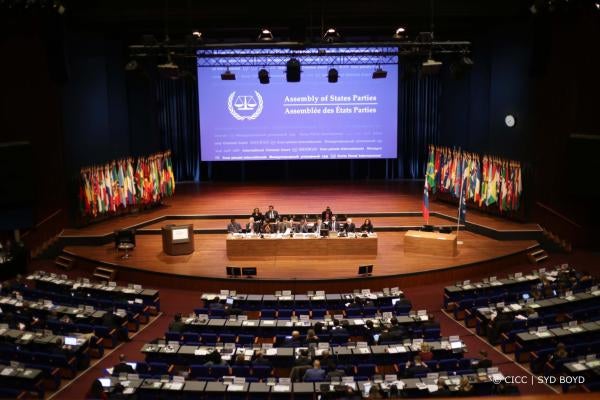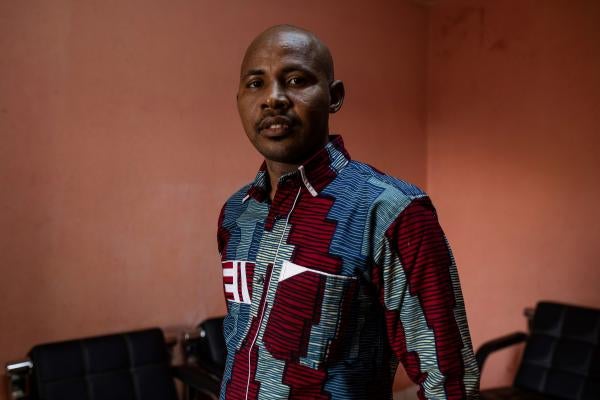Lire la version en français / Lea la versión en español
Getting China to start respecting human rights “is not going to come from wishful thinking,” HRW’s executive director Tirana Hassan told a press briefing yesterday.
Speaking ahead of the EU-China summit in Beijing later this week, she detailed the firm actions the EU could take, but added something else. She highlighted current vulnerabilities in China’s economy, to point out “the EU has more leverage than ever before” to help bring about change.
There’s a kind of self-fulfilling myth about foreign relations with China – that it’s somehow too big or too vital to the global economy to pressure over its appalling human rights abuses. Other global powers, including the EU, therefore resign themselves to not even trying.
Human rights for the EU in its relations with China risk becoming an empty exercise without real ambition, something to bring up just so leaders can say the matter was mentioned.
The EU-China human rights dialogues are the best example. After more than three dozen rounds of these meetings over the years, they have achieved nothing. The situation has only deteriorated in China over that time. In fact, the regular talks are worse than pointless, because they give Beijing a fig leaf.
The EU and many of its member states have increasingly been unwilling to take actions that would match the urgency and intensity of China’s repression and its efforts to rewrite the global human rights rules.
The Chinese authorities’ horrors include crimes against humanity toward Uyghurs and other Turkic Muslims in the Xinjiang region: mass arbitrary detention, torture, enforced disappearances, mass surveillance, cultural and religious persecution, separation of families, forced labor, and sexual violence.
Nor do people in Xinjiang suffer alone. In Tibet, authorities repress and forcibly assimilate Tibetans. In Hong Kong, the Chinese government has erased freedoms, imposing a draconian National Security Law on the city. Across China human rights defenders are persecuted mercilessly in Communist-party-controlled courts.
Up to now, for the most part, the EU has treated all this horror as a mere area of disagreement in its relations with China, part of an “uncomfortable dilemma” as EU foreign policy chief Josep Borrell put it earlier this year.
When European Commission President Ursula von der Leyen and European Council President Charles Michel visit Beijing later this week, they should change that. They should start by saying clearly and publicly the EU does not see the Chinese government as an accountable and reliable partner as long as Beijing refuses to engage in good faith on its own human rights record.
What’s more, they should say the EU will get serious about seeking accountability for Beijing’s crimes and pledge to take the lead in pushing for UN monitoring of them.
And beyond this summit, all EU member states should stand united behind more robust action towards the Chinese government. Specifically, they should expand targeted sanctions against officials responsible for grave violations in Xinjiang, Tibet, and Hong Kong.
China is not “too big” to criticize, nor “too powerful” to take action on. Its economy is not “too unshakeable” for targeted sanctions and trade-related measures to have effect, particularly right now. Most of all, Beijing is not impervious to external pressure.
EU leaders simply need to overcome their self-fulfilling belief in their own failure – and try.







